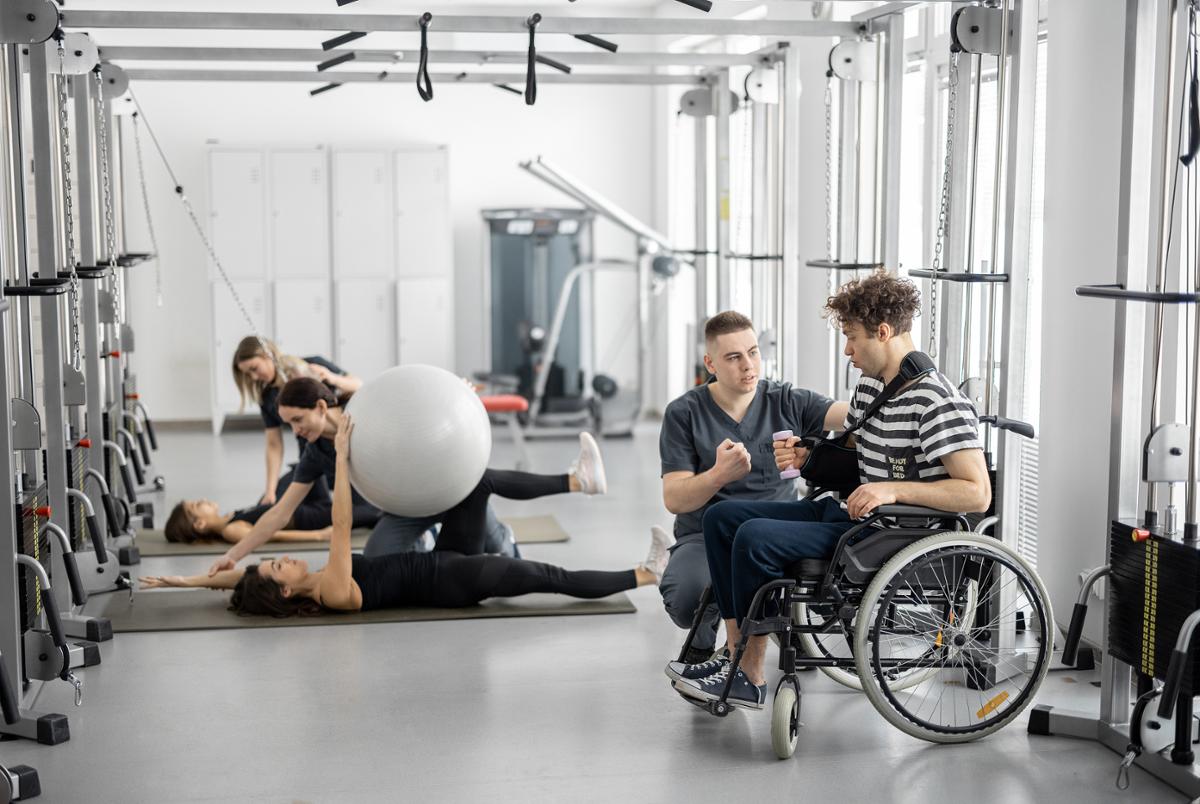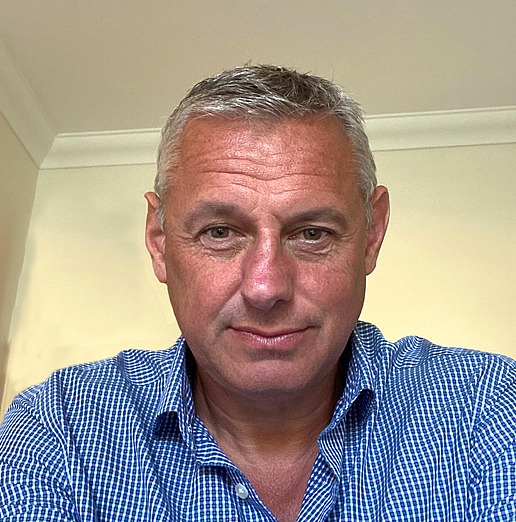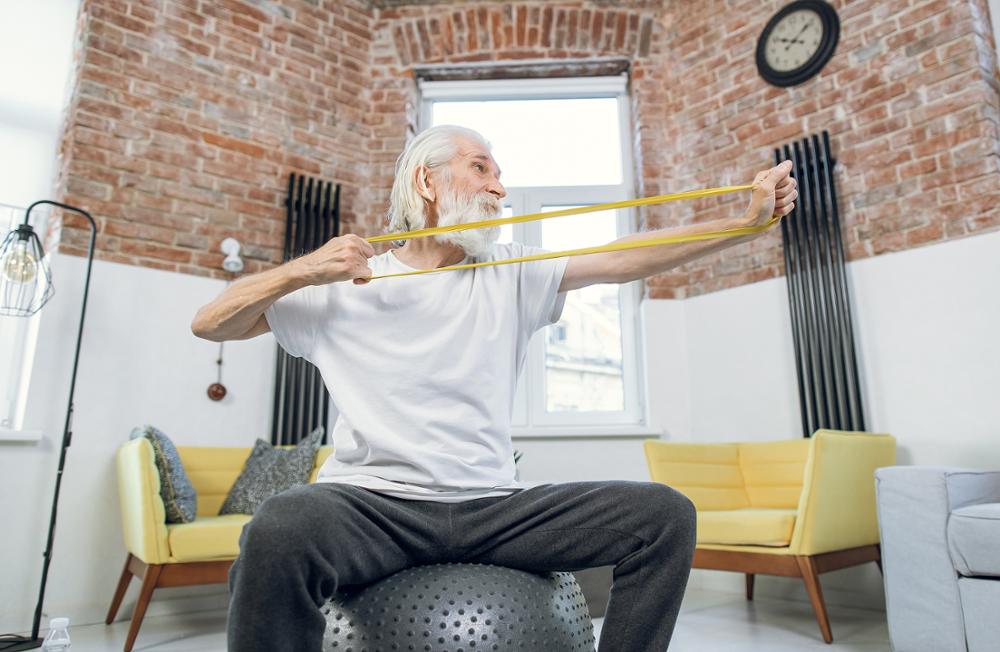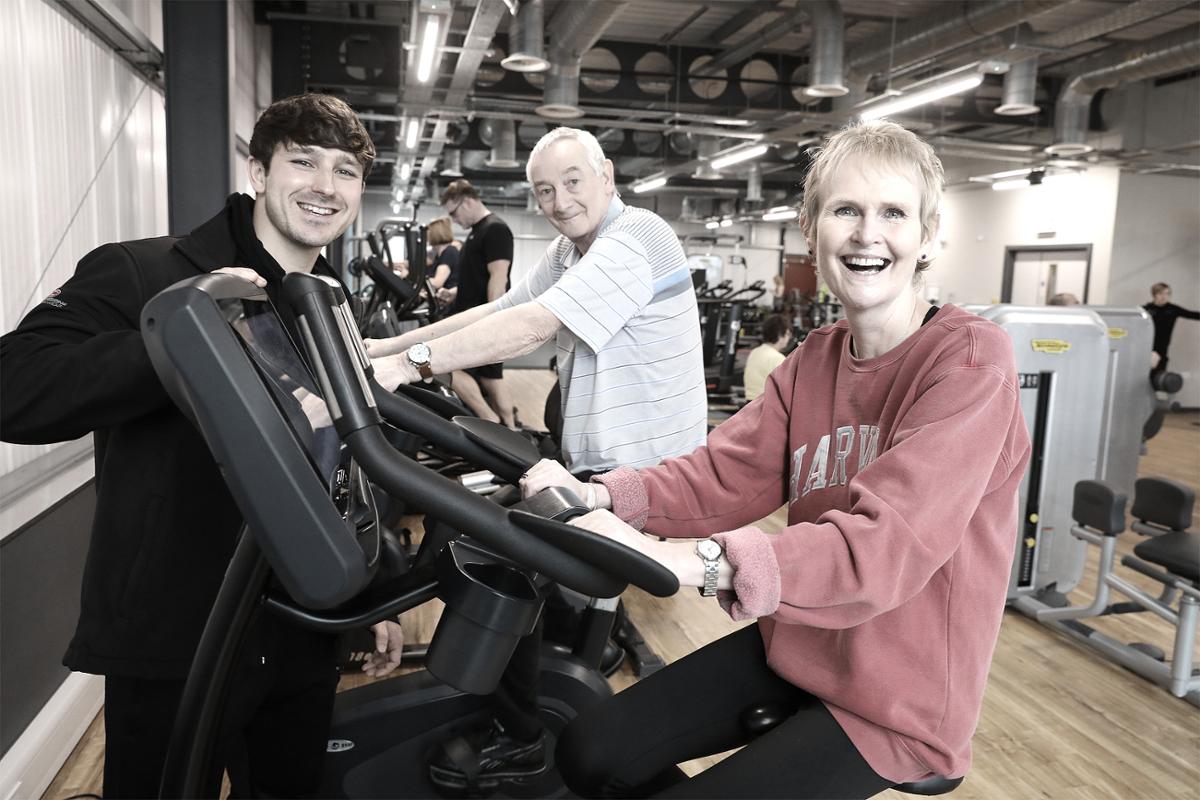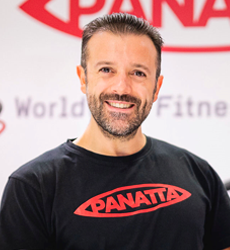A pioneering exercise, nutrition and wellbeing programme supporting cancer patients in preparation for treatment and surgeries is expanding into east and mid-Cheshire following a successful two-year rollout across Greater Manchester.
Prehab4Cancer (P4C) is one of the first prehabilitation and recovery programmes for cancer patients in the UK and is reporting significant results in terms of improving surgical outcomes, with all the benefits this brings to both patients and the bottom line.
An analysis of outcomes has found that prehab patients who’ve gone through the programme spend an average of 36 hours less time in hospital and 10 hours less in critical care, releasing 550 ward-beds-days and 146 critical care-bed-days.
Research into the programme has shown – for example – that bed-days ‘released’ by the shorter stays of 1,000 colorectal prehab patients enabled 179 additional patients to access surgery in a timely way, while bed-days ‘released’ by prehab patients actually covered the entire annual cost involved in setting up and delivering the P4C programme.
Patients also experienced fewer post-operative complications and enjoyed a better recovery when assessed against four efficacy benchmarks: the commonly-used six-minute walk test to measure aerobic capacity and endurance; the World Health Organization Disability Assessment Schedule (WHODAS); the International Physical Activity Questionnaire (IPAQ) and the descriptive system for health-related quality of life, known as EQ5D.
Independent research carried out to assess and confirm recurrent funding for the Greater Manchester scheme also found that P4C hospital patients enjoyed a better recovery.
About Prehab4Cancer
The initiative is the result of a partnership between GM Cancer Alliance and GM Active. Through the programme, cancer patients engage in exercise and get nutrition and wellbeing assessments and interventions before, during and after their treatment.
Since its inception in 2019, P4C has supported 2,500 patients in Greater Manchester and is now aiming to provide for approximately 400 patients living in east and mid-Cheshire Clinical Commissioning Group (CCG) areas – which stretch from Wilmslow in the north, to Crewe in the south. The programme is offered to patients with lung, colorectal (bowel) and oesophago-gastric (often referred to as upper GI) cancers.
Kirsty Rowlinson-Groves, P4C programme manager, told HCM: “Patients are referred to us from the clinical teams at hospitals where they’re being treated. We assign them an exercise specialist, who then undertakes a baseline assessment that defines the scope of the prehabilitation process.
“That’s all about optimising the patient’s cardiovascular fitness and working on their muscular strength,” says Rowlinson-Groves. “We do a lot of strength training to build and optimise muscle, as we know good muscular strength will support function and independence following surgery and treatment. We inspire them to push themselves physically to get in the best condition, so their health and wellbeing is optimised for treatment.
“After prehab they’re reassessed, and that allows us and them to see what improvements have been gained. They then go for surgery and we aim to invite them back for a post-op assessment around four to six weeks after this.”
Co-designed and recurrently funded
P4C is a co-designed transformation programme which has been developed as the result of a partnership between GM Active and GM Cancer. What began as a test project in 2019 has now secured recurrent funding to safeguard its future, following an independent evaluation report.
GM Active is a collective of 12 leisure and community organisations across Greater Manchester all sharing the same vision – to get more people physically active so they can live healthy, happy and longer lives. It’s a not-for-profit community interest company managing the majority of publicly-owned leisure and physical activity services on behalf of the 10 local authorities in Greater Manchester.
Andy King, chair of GM Active, says: “This programme is designed to empower patients to take an active role in their cancer care. It prepares patients for treatment and surgery, and aims to provide positive outcomes for patients during recovery and beyond.
“Prehab4Cancer demonstrates just what can be achieved with structured and imaginative co-design and collaborative working between clinical and physical activity providers. We hope this approach can be applied to other health conditions and services, so physical activity can be embedded throughout every relevant care pathway of the NHS.
“It puts our gyms and leisure facilities on the frontline of cancer care and the preventative health agenda, and speaks directly to our stated aim of getting more people physically active so they can live healthy, happy and longer lives.”
The new Cheshire programme is a pilot scheme running until October 2022 and being funded through the Cheshire and Merseyside Cancer Alliance. GM Active has set up a delivery partnership with Everybody Sport and Leisure and Brio Leisure Trusts to allow the P4C team to deliver the scheme through their sites.
Face-to-face or remote, patients choose
A 10-strong P4C team consisting mainly of exercise and fitness specialists guide patients through their programmes and patients accepting a referral to P4C can choose how to participate in their exercise prescription.
Face-to-face sessions are delivered in leisure centres run by GM Active members in Greater Manchester, and centres managed by Everybody Sport and Leisure and Brio Leisure who are providing facilities in Cheshire.
The programme also has a remote model where patients can choose to exercise at home. A tailored home exercise programme is posted out to them, along with resistance bands for strength training, with sessions supported by their assigned exercise specialist, either over the phone or via a video call.
The remote programme also offers online exercise classes, YouTube channels and 12 live exercise classes per week that patients can join, along with other patients at home. All options are supported by exercise specialists and are available to Greater Manchester and Cheshire patients.
Since January 2021 alone, 1,130 patients have been referred to P4C in Greater Manchester, with an acceptance rate of 82 per cent. With the pilot scheme in its infancy in Cheshire, 20 patients are currently taking part.
From prehab, to rehab to healthier life
Patients are contacted to make arrangements to start their rehab about a month after having surgery or ending treatment. If they agree, they’re assessed and then embark on a three-month rehab period, designed to build them up physically.
Once that period is over, patients are discharged into community programmes, often at the leisure centres where they did their prehab. They’re also directed to community and volunteer organisations, such as allotment societies or walking groups, who can help to keep them fit and active. Rowlinson-Groves says: “This time after surgery or treatment is sometimes called a ‘teachable moment’. If people have come through cancer treatment or cancer surgery, their health is more important to them afterwards, so healthier options and healthier lifestyles are what they’re drawn to.
“In our 12-weeks of rehab, our team’s role is to educate and build behaviour change and increase the patient’s confidence in making healthier, more active choices – giving them the confidence to access the services that will help them.”








